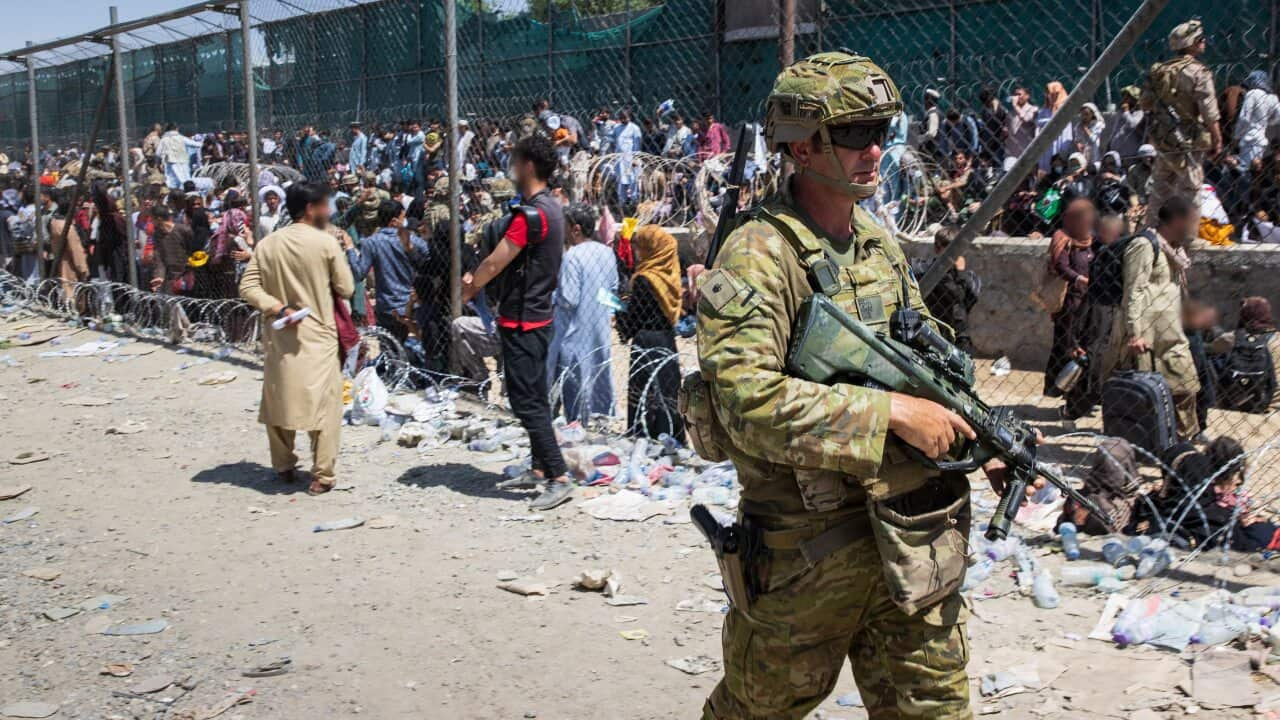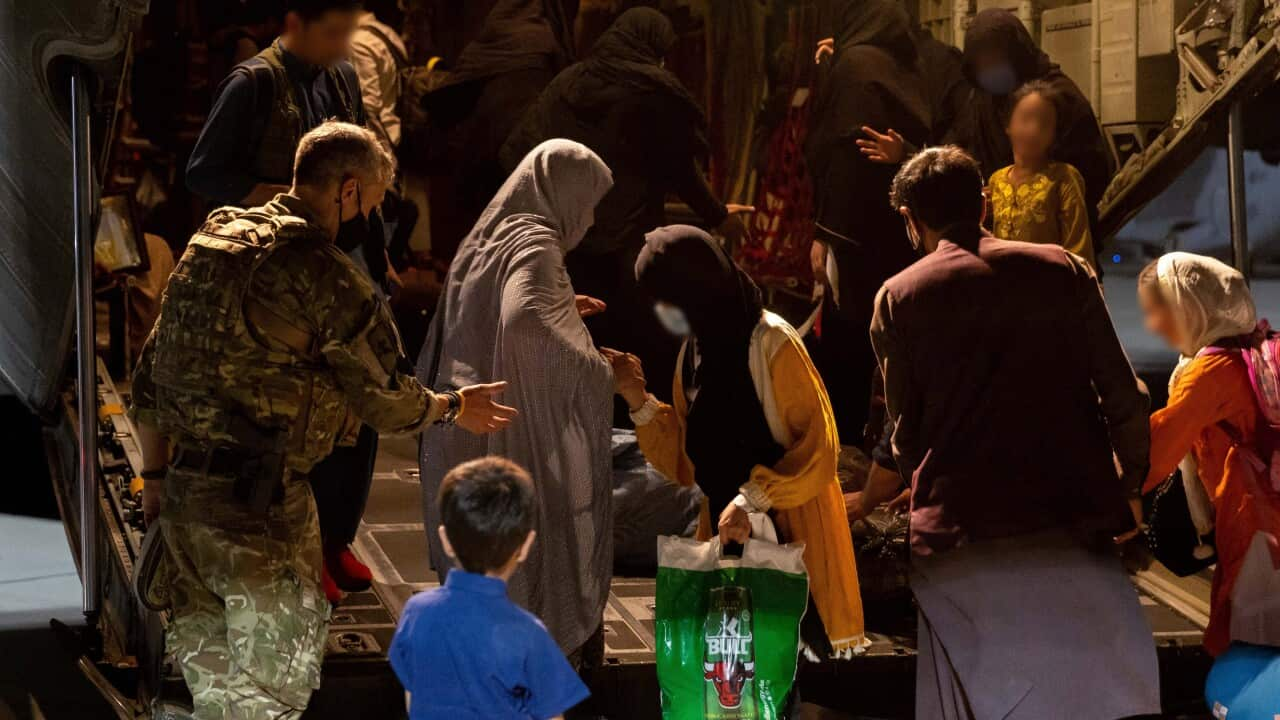Ahmad* is one of almost 1,400 Afghans granted an emergency visa during the height of , but had no way to leave before it expired.
He worked with Australian forces as an interpreter, but says his life has now been left in limbo after fleeing to neighbouring Pakistan, facing threats from the Taliban.
"Please help me, because my life, my family's lives, are now in danger," he told SBS News.
"All the other interpreters left behind in Afghanistan, their lives are in danger too. We just want the Australian government to please help us."
The federal government signed off on 6,095 of the to allow people to leave, with the response aimed at fast-tracking their departure from Afghanistan.
But their three-month expiry date meant those not successful in travelling to Australia in this time frame have been forced to lodge applications for alternative visas.
'Still at risk'
The decision has been questioned in a parliamentary report released this week, backed by government members, examining Australia’s engagement with Afghanistan .
The report is urging the visas to be reinstated and makes several recommendations to improve the Department of Home Affairs’ processes and communication.
It said 1,398 people handed the temporary 449 visa never entered Australia - meaning many "deemed worthy" of evacuation are now facing "lengthy wait times".
The report also warned thousands of applicants have been left "unsure as to whether any progress has been made on their applications".
The government decided in November to extend the short-term visas only for those who had either already arrived in Australia, or people who remained overseas but had links to the program for Afghan locally engaged employees like interpreters and guards.
The Department of Home Affairs has said it is considering its response to the findings of the Senate report.
Since the Taliban took over Kabul, around 6,500 people from Afghanistan have reached Australia.
But deputy chair of the inquiry Liberal Senator Eric Abetz conceded delays in communication have left many of those still in Afghanistan anxious.
"Having uncertainty must be exceptionally difficult if you're left in Afghanistan, not knowing what your future is needing some sort of documentation that might allow you out of the country, and you don't have it," he told SBS News.
He said the Department of Home Affairs is under pressure and despite the "good work" of officials "more can be done, especially now".
"Is [the Department of] Home Affairs stretched? I think it is," he said,
"There's no doubt we now have the Afghan situation, the Ukraine situation, remember the Syrian situation as well."
Lawyer Glenn Kolomeitz has been assisting former interpreters in Afghanistan and said the decision not to reinstate the visas didn't make sense.
"We now have a substantial group of people in Afghanistan still at risk who our government deemed were worthy of coming to Australia on these temporary visas," he told SBS News.
"[They] have now said well you're no longer worthy apparently."
Mr Kolomeitz said the lack of information is aggravating the delays of the ongoing evacuation.
"People aren’t receiving adequate communication from [the Department of] Home Affairs; what communications they do receive is confusing and often contradictory."
Department of Home Affairs 'stretched'
Australia’s humanitarian intake of Afghan refugees has been increased.
In the federal budget, an additional 16,500 places have been allocated over four years, taking the country’s total commitment to 31,500 places.
But the need is much greater with more than 140,000 Afghans applying to the Department of Home Affairs for a humanitarian visa.
Minister for Home Affairs Karen Andrews has defended the progress.
"There are a number of visa applications which are currently underway," she told reporters.
"The Department of Home Affairs is working to make sure they can process those [visas] as soon as possible."
But there are calls for this to be increased further. Both Liberal and Labor senators on the committee all agreed on the language of the Senate committee's report.
It’s raising hopes the recommendations - which are non-binding - will be considered and adopted by the next government.
"[The recommendations] are unanimous from the committee," Senator Abetz said.
"I would like to think it will carry some extra weight for the benefit of these Afghan people who are in a world of hurt pain and uncertainty."
South Australia’s new premier Peter Malinauskas on Wednesday told the National Press Club that Australia’s refugee intake is far short of its historic generosity.
"if we can't at least double that, I think that would be a source, a lack of national pride and contextual understanding of exactly who we are as a country and what our values are," he said.
The responsibility to consider such a decision will soon depend on the outcome of the coming election.
*Name has been changed to protect their identity.













